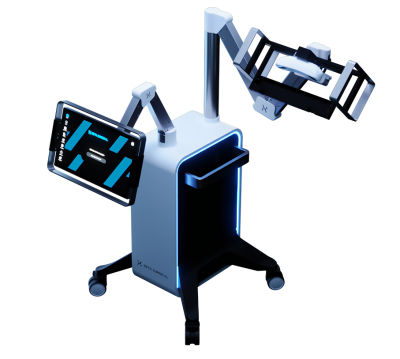We already have GPS systems to guide us through busy streets, golf courses, sprawling academic buildings and big box stores—so why not the human body?
That’s what Zeta Surgical has built: a digital navigation system that helps surgeons carry out precise procedures in the brain.
And now, less than two years after emerging from stealth, the company has earned FDA clearance for the technology, it announced this week. That curtain-lifting moment came in March 2022, when Zeta stepped into the spotlight with $5.2 million raised from investors including Innospark Ventures, TSVC, Y Combinator, former Tenet Healthcare CEO Trevor Fetter and more.

The Zeta Cranial Navigation System relies on computer vision and artificial intelligence software to create overlays that the company classifies as “mixed reality”—a cousin of virtual and augmented reality that adds virtual elements to a real-time view of the physical world.
Unlike typical headset-based AR and VR approaches, however, Zeta’s system displays its enhanced images on a standard screen and can also connect to robotic tools, allowing its “GPS-like” guidance to be used beyond traditional operating room settings.
Additionally, because Zeta’s AI continuously adjusts the displayed images and overlays multiple times a second for maximum accuracy, the company says it can enable minimally invasive neurosurgical procedures to be completed without requiring general anesthesia or rigid skull immobilization.
“The FDA’s market clearance of the Zeta navigation system ushers in the next generation of innovation to neurosurgery. Like all paradigm-changing innovations, Zeta will change the way we conceive of where we can perform neurosurgery within our hospitals and where in the world these hospitals can be,” William Gormley, M.D., the company’s chief medical officer, said in the announcement.
Zeta’s news follows another announcement just this week celebrating OnPoint Surgical’s FDA clearance for its own AR-based surgical guidance system.
The OnPoint AR Spine System centers around a head-mounted, see-through display that adds virtual overlays to a surgeon’s view throughout a spinal implant placement procedure. The technology can be used alongside implants sold in the U.S. by all major manufacturers, and its use can result in spine-focused procedures that are two to five times more accurate than those conducted using other navigation, robotic and AR systems, according to OnPoint.